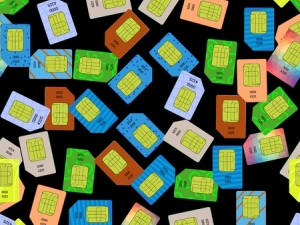
Embedded SIM cards will increasingly dominate the machine-to-machine (M2M) space, accounting for more than 50% of connections by 2020.
This is according to market analyst firm Juniper Research report: M2M: Strategies & Opportunities for MNOs, Service Providers & OEMs 2016-2021.
The study says smart metering and connected car connections will comprise the majority of all cellular M2M embedded connections over the next five years.
Also, 3G connections will comprise half of all cellular M2M connections in 2021, due to the need for an affordable and low speed service, it adds.
The report notes introduction of the GSMA's embedded specification is likely to fuel the opportunity for service providers to offer remote provisioning of SIM cards.
This in turn would greatly enhance the capabilities of service providers to update and augment offerings and subscriptions, it says.
According to Technavio, embedded SIMs eliminates the need for replacing SIM cards throughout the lifetime of M2M products and provide over the air (OTA) for M2M systems such as connected cars and smart meters to deliver reliable and secure connectivity to users, says Technavio.
Companies such as Apple and Samsung sealed an agreement with GSMA to adopt the GSMA eUICC SIM, and many other companies are lined up to adopt the embedded SIM technology, it says.
"Network operators should capitalise the growth of M2M by offering customisable M2M platforms that offer a variety of simple billing models, says the study.
Additionally, migration to OTA provisioning would facilitate a range of new business models, potentially increasing the lifetime value of M2M subscription while also reducing costs, it notes.
"Embedded SIMs would offer increased benefits to customers across an array of verticals, as remote provisioning would oblige operators to compete on pricing, functionality and customisation capabilities."
"By making M2M affordable, the introduction of the embedded model can in turn allow farmers in regions such as Sub-Saharan Africa and developing Asia to increase their yield, boosting crop production and helping to address the rising demand for food," says research author, Sam Barker.
Juniper Research believes that traditional SIMs will remain the most used form of connectivity hardware over the next two years, while future adoption of embedded SIMs is dependent on the device manufacturers, which currently include Ericsson, Gemalto, Jasper and Sierra Wireless.
GSMA points out operators will continue to play a key role in how the SIM develops, the pace of evolution and the associated business models.
The pace and the extent of SIM evolution will depend on criteria, requirements and acceptance at a market-by-market level - widespread deployment will take a number of years, it will not happen overnight, it adds.
Share